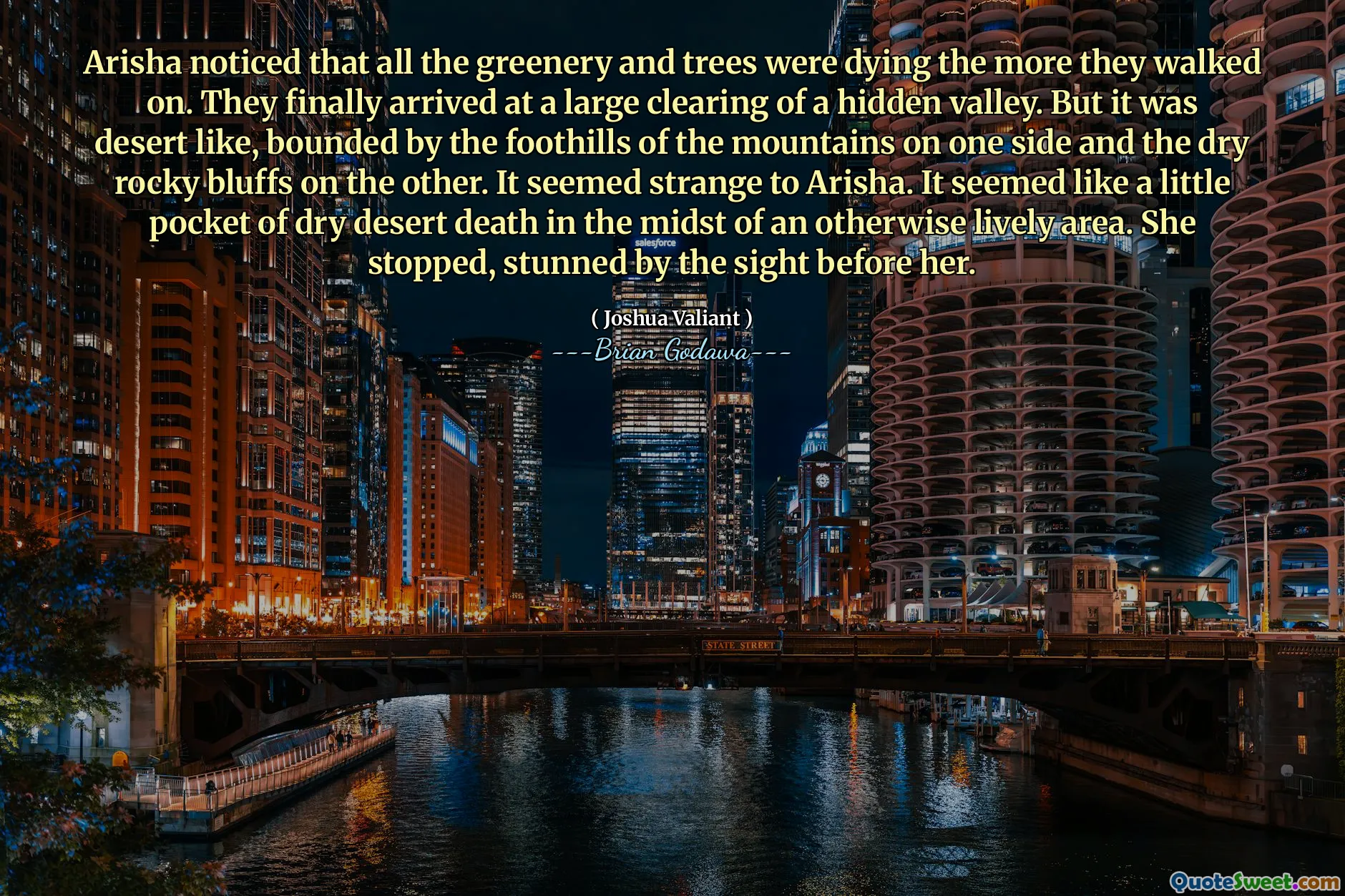
Arisha noticed that all the greenery and trees were dying the more they walked on. They finally arrived at a large clearing of a hidden valley. But it was desert like, bounded by the foothills of the mountains on one side and the dry rocky bluffs on the other. It seemed strange to Arisha. It seemed like a little pocket of dry desert death in the midst of an otherwise lively area. She stopped, stunned by the sight before her.
This passage from Brian Godawa's (Joshua Valiant) excerpt skillfully captures an evocative moment of contrast and subtle mystery. Arisha's journey progresses from a presumably lush environment into a hidden valley that starkly deviates from the surrounding vitality. The imagery of "all the greenery and trees dying the more they walked on" immediately plants an unsettling tone, suggesting a creeping death or decay that grows stronger with distance. The eventual revelation of a barren, desert-like clearing locked within a lively landscape provokes a sense of isolation and incongruity.
The setting behaves almost like a character itself: a hidden valley described as a "little pocket of dry desert death" suggests the presence of something unnatural or ominous lurking within nature. This contrast between life and death, growth and decay, invites readers to ponder the deeper implications—perhaps a metaphor for corruption, hidden dangers, or the fragility of ecosystems (literal or symbolic). Arisha's stunned pause shows her internal response to an extraordinary sight, emphasizing human vulnerability in the face of nature's contradictions.
Beyond the surface, the passage poses wider themes of discovery and the unknown. The transition from thriving life to a desolate enclave represents moments in life when one uncovers unexpected or disquieting truths beneath an exterior of prosperity. It's a powerful reminder of the complexities beneath appearances and perhaps alludes to journeys of self-knowledge or spiritual trial where growth confronts adversity.
Stylistically, Godawa uses concise, vivid descriptions without overly romanticizing the scene, which strengthens the impact by grounding the imagery firmly in sensory experience. The foothills and dry rocky bluffs serve as natural boundaries, heightening the valley’s isolation and mystery. This environmental detail deepens the immersive quality of the scene and reflects on nature's unforgiving yet enigmatic character.
In sum, this quote resonates on multiple levels—as an atmospheric description, an invitation to reflection on life and decay, and a bookmark for an important turning point in Arisha's journey. It perfectly blends natural imagery with thematic depth, leaving readers both visually enchanted and intellectually stirred.






